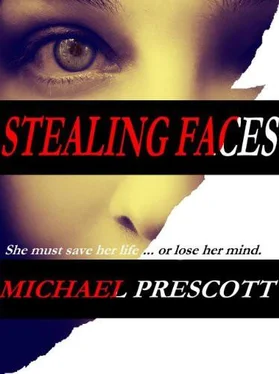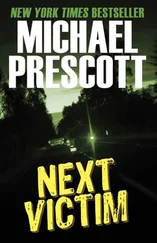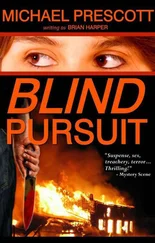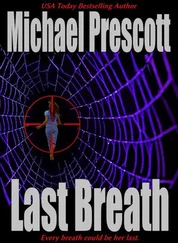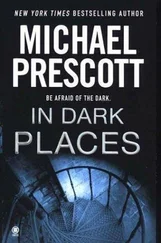Michael Prescott - Stealing Faces
Здесь есть возможность читать онлайн «Michael Prescott - Stealing Faces» весь текст электронной книги совершенно бесплатно (целиком полную версию без сокращений). В некоторых случаях можно слушать аудио, скачать через торрент в формате fb2 и присутствует краткое содержание. Жанр: Триллер, на английском языке. Описание произведения, (предисловие) а так же отзывы посетителей доступны на портале библиотеки ЛибКат.
- Название:Stealing Faces
- Автор:
- Жанр:
- Год:неизвестен
- ISBN:нет данных
- Рейтинг книги:4 / 5. Голосов: 1
-
Избранное:Добавить в избранное
- Отзывы:
-
Ваша оценка:
- 80
- 1
- 2
- 3
- 4
- 5
Stealing Faces: краткое содержание, описание и аннотация
Предлагаем к чтению аннотацию, описание, краткое содержание или предисловие (зависит от того, что написал сам автор книги «Stealing Faces»). Если вы не нашли необходимую информацию о книге — напишите в комментариях, мы постараемся отыскать её.
Stealing Faces — читать онлайн бесплатно полную книгу (весь текст) целиком
Ниже представлен текст книги, разбитый по страницам. Система сохранения места последней прочитанной страницы, позволяет с удобством читать онлайн бесплатно книгу «Stealing Faces», без необходимости каждый раз заново искать на чём Вы остановились. Поставьте закладку, и сможете в любой момент перейти на страницу, на которой закончили чтение.
Интервал:
Закладка:
“Give Lawton a Bible,” he told the attendant indifferently, “if he wants one. But make him understand that he can’t annoy or harass the others.”
“Dr. Gonzalez was afraid having the Bible might get him more agitated.”
Cray ordinarily did not overrule the psychiatrists working under him, but he saw no merit in Gonzalez’s concern. “If he gets agitated, tell him the meek will inherit the earth. That one has done the trick for centuries.” He started to move away, then added, “If he still won’t calm down, sedate him.”
A great many of Hawk Ridge’s patients were sedated throughout their stay. Some had been heavily tranquilized for years. The other psychiatrists, Cray’s subordinates, had been critical of this approach, believing that it impeded the patients’ recovery.
This might be true. But Cray would not have a lot of lunatics raising hell in the public parts of the hospital. They could scream all they liked while in seclusion, but the common areas must be kept safe and civilized.
He wandered among the patients in the day hall. They were men and women, young and old, all different, yet all curiously alike in their white sneakers and white socks and light blue, two-piece cotton garments, which looked very much like pajamas. At some institutions the patients were permitted to wear their street clothes, but Cray sniffed the dangerous scent of anarchy in this policy.
He ran a tight operation. His hospital was clean. The food in the commissary was nutritious and filling and sometimes even tasty. Discipline was enforced on both the patients and the staff. He made few mistakes.
But Kaylie — innocent little Kaylie with her freckled schoolgirl face and shy, hushed voice…
He’d made a mistake with her. And he was paying for it even now. He had paid for twelve years.
At 11:15 his pager buzzed, displaying his secretary’s number. He called her from a phone in Dr. Bernstein’s office.
“One of the groundskeepers was working near your house,” Margaret said, worry in her voice. “He found your garage window broken. He says it looks like someone tried to get in.”‘
Cray did his best to sound concerned. “I’ll be right over to take a look.”
The morning had been routine so far, but all of that was about to change.
22
"Cornflakes.”
Shepherd stopped at the front steps of the Hawk Ridge Institute, facing a pair of gray-haired patients in matching cotton outfits.
“Excuse me?” he asked the one who had spoken, a chinless man with a face made of wrinkles and liver spots.
“Cornflakes,” the man repeated. “Cornflakes with milk.”
He smiled. His two front teeth were missing. He looked like a mischievous child.
The man’s companion, a woman with glazed eyes, asked Shepherd if he had ever been to Venice.
“No,” Shepherd said. “Never.”
The woman nodded, satisfied. She and her friend returned their attention to an empty ambulance slant-parked in a loading zone. They stood staring at it raptly, and Shepherd headed up the steps.
The front doors opened on a small lobby, musty and inadequately lit. Another patient was inside, this one a middle-aged woman who sat curled on a wooden bench, studying her sneakers as she hummed to herself.
She had a proud, photogenic face, and Shepherd felt a touch of sadness when he thought of the person she might have been, if illness hadn’t stolen her mind.
At the front desk sat a receptionist, paying no attention to the patient. Her concentration was fixed on the flickering amber monitor of an antique computer terminal. For a moment she reminded him of Ginnie. There was no physical resemblance, only the pose she had struck, the air of intent concentration as her careful hands worked the keyboard.
Somewhere deep inside him there was a revival of the old pain. He felt it, hated it, and at the same time, oddly, he was almost bored with it, because the pain had been with him for so long now, and had gotten tiresome.
Maybe this was what people meant when they spoke of healing. He hoped so.
“May I help you?” the receptionist asked without looking up.
“I’d like to see Dr. Cray.”
“Do you have an appointment?”
“I’m afraid not.”
She frowned. The garish amber light glinted on her granny glasses. “Which patient is this regarding?”
“None.” He showed his badge. “I need to talk to Dr. Cray about a police matter.”
The woman barely glanced at the badge. She seemed unimpressed. It occurred to Shepherd that the institute’s staff must be accustomed to police inquiries. Kroft had said the hospital had regular dealings with the local sheriff’s department. Certain obviously unstable suspects — transients, arsonists — were held here for psychiatric evaluation.
“You’ll have to sign in, please.”
Shepherd filled out the sign-in sheet fastened to a clipboard. The receptionist put it away without looking at it.
“Dr. Cray’s in his office. Second floor. Room twenty-two. Elevator works only if you’ve got a key, and anyway, it’s busted. Take the stairs.”
She jerked her head at a door with a steel handle and a posted sign that read STAFF ONLY.
Shepherd thanked her, but she was already bent over her keyboard again.
The stairwell smelled of disinfectant. Shepherd disliked that smell. It reminded him of hospitals — well, of course, this was a hospital, wasn’t it? — but he was thinking of the other kind of hospital, the normal kind, like the University Medical Center in Tucson, where, two years ago, he had spent a long series of days and nights, praying, eating too little, crying when he was alone and no one could see.
God, he wanted to be out of this place. He would talk to Cray, size him up, and go.
The door at the top of the stairs opened on a hallway. Shepherd had thought that mental hospitals were always decorated in light green or blue tones to soothe the patients, but the walls here were white, and so were the doors — everything, white.
Some of the doors were open. Walking past, he glimpsed staff members on the phone or typing at actual typewriters, IBM Selectrics or some similar equipment. He hadn’t thought anybody used typewriters anymore. He wondered if Hawk Ridge’s employees used carbon paper too, and mimeograph machines.
In one room, marked ADMISSIONS, the two paramedics who had arrived in the ambulance stood flanking a disheveled teenager in an overcoat. A woman who must be a doctor was interviewing the kid, jotting down notes on a clipboard,
“And what did you do after you got home?” she asked.
“I watched TV, and the guy in the car commercial told me I needed to start a fire in the toolshed. He told me I had to burn the fucker down. I didn’t want to. I’m scared of fire. But the guy was on TV, you know? When they’re on TV, you gotta do what they say….”
Room 22 was at the end of the hall. This door was also open. Shepherd entered an anteroom furnished with a desk, a few file cabinets, and a couch. A plaque on the desk read MARGARET. Cray’s secretary, or assistant, or whatever she should be called.
Her swivel chair was empty. The clock on the wall pointed to 12:15. She must have left for lunch.
But Cray was here. Shepherd saw him through the doorway of his office, seated at his desk, a telephone in one hand and a file folder in the other.
“The chart’s in front of me now,” he was saying. “Moban, seventy-five milligrams. Maintain him on that dosage for two weeks, and then, if necessary, we’ll take another look.”
He hung up, raised his head, and noticed Shepherd in the anteroom. “Yes?” he snapped.
Every cop was good at assessing people. Shepherd processed what he could see of Dr. John Cray — sharp eyes, high forehead, small mouth, hollow cheeks — and decided the man was intelligent, arrogant, controlling, and very tired.
Читать дальшеИнтервал:
Закладка:
Похожие книги на «Stealing Faces»
Представляем Вашему вниманию похожие книги на «Stealing Faces» списком для выбора. Мы отобрали схожую по названию и смыслу литературу в надежде предоставить читателям больше вариантов отыскать новые, интересные, ещё непрочитанные произведения.
Обсуждение, отзывы о книге «Stealing Faces» и просто собственные мнения читателей. Оставьте ваши комментарии, напишите, что Вы думаете о произведении, его смысле или главных героях. Укажите что конкретно понравилось, а что нет, и почему Вы так считаете.
